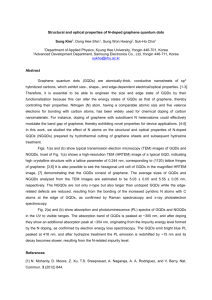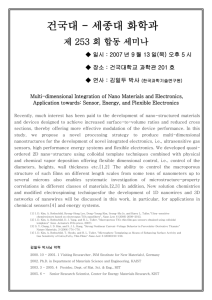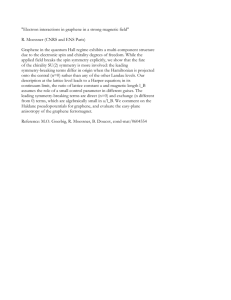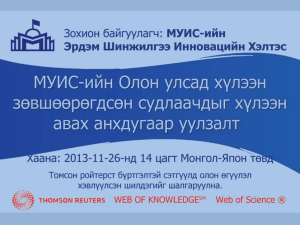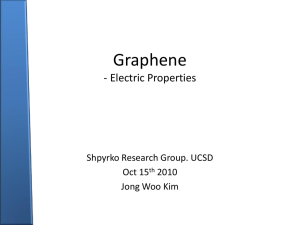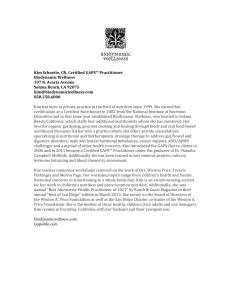Supporting material(Y Kim_SKKU)
advertisement
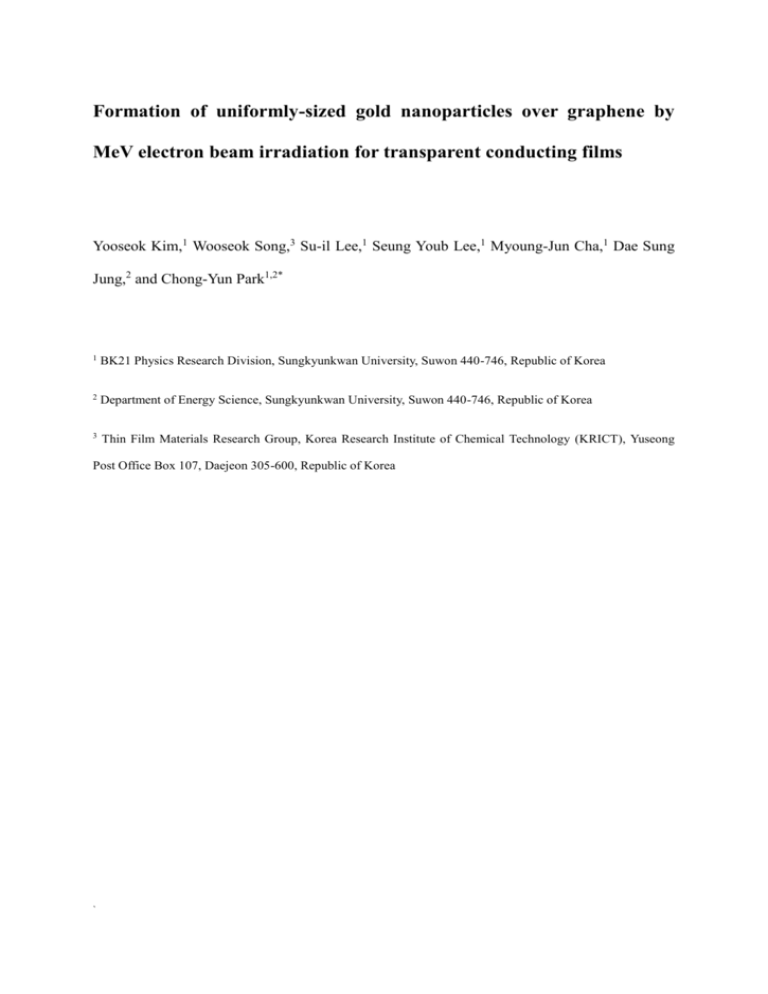
Formation of uniformly-sized gold nanoparticles over graphene by MeV electron beam irradiation for transparent conducting films Yooseok Kim,1 Wooseok Song,3 Su-il Lee,1 Seung Youb Lee,1 Myoung-Jun Cha,1 Dae Sung Jung,2 and Chong-Yun Park1,2* 1 BK21 Physics Research Division, Sungkyunkwan University, Suwon 440-746, Republic of Korea 2 Department of Energy Science, Sungkyunkwan University, Suwon 440-746, Republic of Korea 3 Thin Film Materials Research Group, Korea Research Institute of Chemical Technology (KRICT), Yuseong Post Office Box 107, Daejeon 305-600, Republic of Korea ` MeV e-beam irradiation An electron beam with an energy of 1.5 MeV and a total fluence of 1 × 10 16 cm-2 (irradiation time: 1760 sec at 1 mA) was used under ambient conditions. FIG. S1. Schematic illustration of gold nano-particlization promoted by MeV e-beam irradiation. Pristine graphene Raman mapping was conducted using a confocal Raman spectrometer (WiTec, CRM200) with an excitation wavelength of 532 nm. TEM was used to investigate the number of layers in the graphene films. FIG. S2. (a) Raman spectra of synthesized graphene films taken at an excitation wavelength of 514 nm. Optical microscopy and (b) and (c) Raman mapping images of graphene films on the SiO2/Si substrate, (d) HR-TEM and (e) SEM images of the graphene films. Energy dispersive X-ray spectroscopy mapping We carried out EDS mapping/imaging of after 1.0 MeV e-beam irradiated sample. Chemical mapping confirmed that the bright particles in the SEM image were Au, with overlaying carbon signals due to Au NP coating on the graphene. FIG. S3. SEM image (a) after 1.0 MeV e-beam irradiation, EDS elemental mapping of (b) carbon and (c) gold after 1.0 MeV e-beam irradiation. Sheet resistance FIG. S4. Sheet resistance and transmittance of ITO, CNTs, silver nanowire, and graphene films reported by several groups. Bending stability These results show the excellent electromechanical stability of A3L-G. Fig. S5. Bending stability test results for A3L-G on a PET film. The inset shows the bending morphology. References (1) S. De, P. E. Lyons, S. Sorel, E. M. Doherty, P. J. King, W. J. Blau, P. N. Nirmairaj, J. J. Boland, V. Scardaci, J. Joimel, J. N. Coleman, ACS Nano 33, 714 (2009). (2) H. Z. Geng, K. K. Kim, K. P. So, Y. S. Lee, Y. Chang, Y. H. Lee, Am. Chem. Soc. 129, 7758 (2007). (3) K. S. Kim, Y. Zhao, H. Jang, S. Y. Lee, J. M. Kim, K. S. Kim, J. H. Ahn, P. Kim, J. Y. Choi, B. H. Hong, Nature 457, 706 (2009). (4) P. J. King, U. Khan, M. Lotya, S. De, J. N. Coleman, ACS Nano 4, 4238 (2010). (5) S. Lee, K. Lee, C. H. Liu, Z. Zhong, Nanoscale 4, 639 (2012). (6) F. Güneş, H. J. Shin, C. Biswas, G. H. Han, E. S. Kim, S. J. Chae, J. Y. Choi, Y. H. Lee, ACS Nano 4, 4595 (2010). (7) K. K. Kim, A. Reina, Y. Shi, H. Park, L. J. Li, Y. H. Lee, J. Kong, Nanotechnology 21, 285205 (2010). (8) X. Li, Y. Zhu, W. Cai, M. Borysiak, B. Han, D. Chen, R. D. Piner, L. Colombo, R. S. Ruoff, Nano Lett. 9, 4359 (2009). (9) S. Bae, H. Kim, Y. Lee, X. Xu, J. S. Park, Y. Zheng, J. Balakrishnan, T. Lei, H. R. Kim, Y. I. Song, Y. J. Kim, K. S. Kim, B. Özyilmaz, J. H. Ahn, B. H. Hong, S. Iijima, Nat. Nanotechnol. 5, 574 (2010). (10) Y. Zhu, Z. Sun, Z. Yan, Z. Jin, J. M. Tour, ACS Nano 5, 6472 (2011). (11) J. Groep, P. Spinelli, A. Polman, Nano Lett. 12, 3138 (2012).
